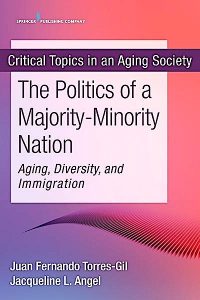Diaz Explores Repercussions of National Emergency Over Border Wall
Sonja Diaz, director of the UCLA Luskin-based Latino Policy and Politics Initiative, spoke with the San Francisco Chronicle about the potential political repercussions of declaring a national emergency to secure funding for a wall on the U.S.-Mexico border, an action that President Trump is contemplating. Declaring an emergency would allow Trump to secure funding for the wall without congressional approval. This action may please Trump’s current base; but it could also benefit Democrats by ending the government shutdown triggered by the budget battle over border security while allowing them to keep the campaign against the wall alive. Diaz commented on the impact that building the wall may have on Trump’s chances of reelection. “In 2020, states like Arizona and Texas [with surging Latino turnout] are going to be critical,” she said. “This is going to be very impactful on who they choose on that ballot.”
 UCLA Luskin Professor
UCLA Luskin Professor 